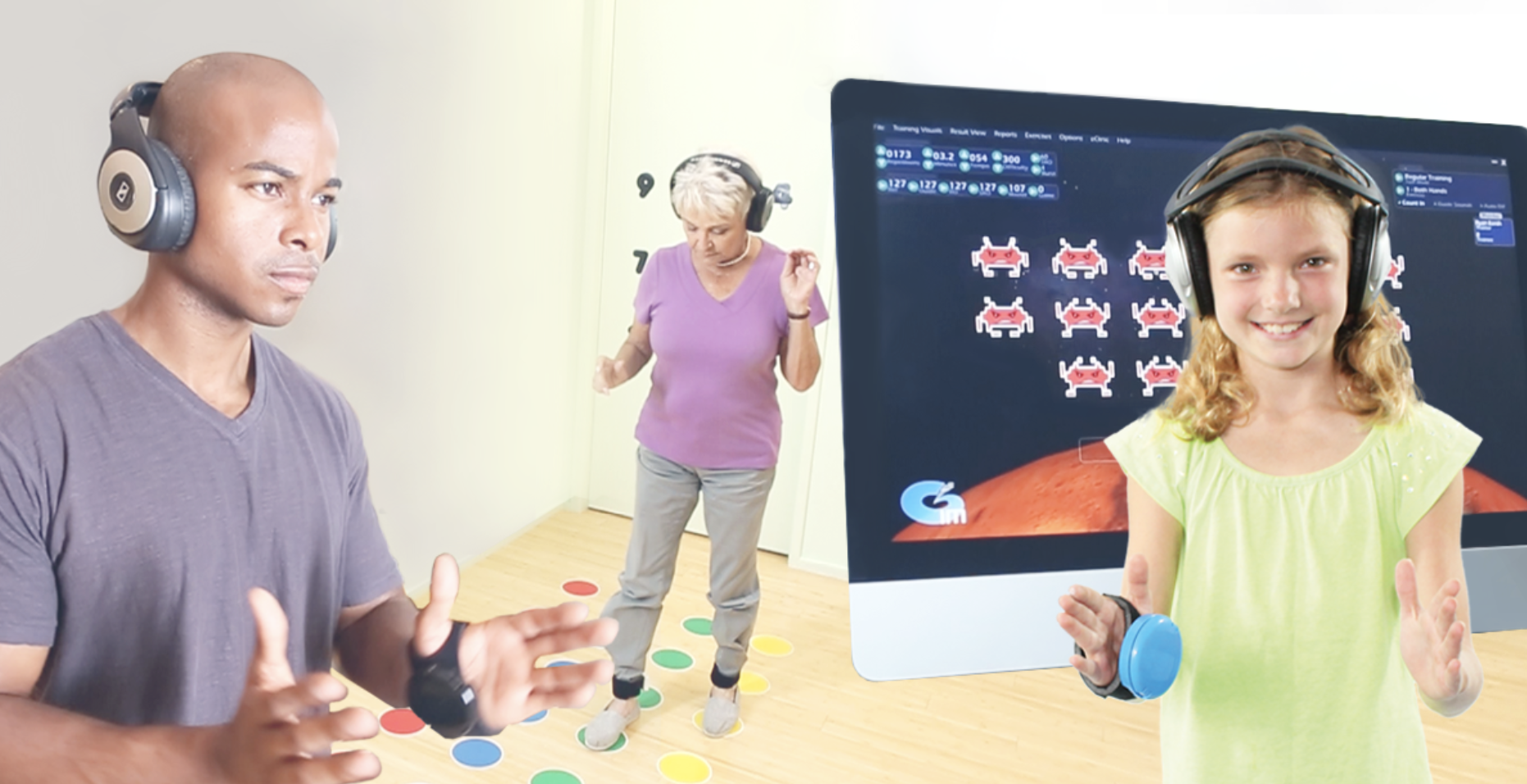![]()

Are you challenged with a health condition that results in movement and balance being a struggle? If so there’s a good chance that Gerry Douglas can be of help. Interactive Metronome® technology, has proven helpful to thousands of people challenged with any one of many conditions that can inhibit movement or balance.
Gerry Douglas will work in cooperation with you and your registered Health Care Provider, to check the viability of Interactive Metronome training being of help to you.
Two Simple Steps to Follow
- Watch the videos, and read a selection of the written case studies below. This will help you get a feel for the range of conditions for which Interactive Metronome training has been used successfully in providing an appreciable amount of help. You’ll see that Interactive Metronome training can be helpful for aiding recovery from acute conditions (such as an accident); or chronic conditions, such as Parkinson’s or Multiple Sclerosis.
- More questions? Book a discounted 30 minute online introductory appointment. Cost: $65.00
Note: Results will vary between trainees, therefore individual results cannot be guaranteed. Please read the full Terms of Engagement page
Amyotrophic Lateral Sclerosis (ALS)
Prior to IM training, he had lost his ability to fully extend his fingers on both hands. After performing the customized IM exercises for finger extension with Robyn for about 2 1/2 months, Larry regained the ability to fully extend the fingers on his right hand and partially extend the fingers on his left hand….In Larry’s own words, “I firmly believe that Interactive Metronome therapy has played a large part in stalling the progression of ALS and believe it should be a frontline defense therapy for early diagnosed patients.” … Read More
Athletic Injuries
Steven was an avid cyclist, riding over 100 miles a week with his buddies! Unfortunately, a severe accident left Steven down, but not out; he was determined to get back on the saddle. His therapist worried that the damage to his knee, and the brace he had to wear, would ultimately cause problems with his gait. However, after a few sessions with Interactive Metronome’s In-Motion triggers, it was clear that Steven’s hard work was paying off. Walking wasn’t a problem. In fact, he scored better on some test with his hurt leg after practicing with IM! It’s time to get back out riding! … Read More
It’s amazing how in just a few days training with IM’s Gait Mate, an injured sophomore football player made significant cornerstones in his rehabilitation process. In just 5 days he mastered the walking gait (heel stride) that is usually the most difficult in the program and could move on to work on his jogging and running gait. The Interactive Metronome provided for a much faster and easier recovery. ... Read More
Multiple Sclerosis (MS)
As a progressive disease, Margaret realized that IM was not a cure-all, but with a combination of an IM clinical service delivery model followed by access to home-based IM activities via the IM-Home, she was able to achieve all three of her ambitious life changing goals to a resounding, “it feels good to get going again!” … Read More
Parkinson’s
Dawn is a 65 year-old woman diagnosed with Parkinson’s disease ten years ago. She is currently prescribed several medications to control symptoms. Dawn also exercises regularly, which helps some with gross motor control, strength and endurance. Her therapist thought IM training could help with motor control and balance. After just a few sessions, Dawn was more energetic, getting more done around the house and playing the piano again! Dawn credits IM training with increasing her energy level and stamina, and she says it is helping her to stay ahead of her Parkinson’s! … Read More
Bernard is an 86-year-old gentleman who has continued to be actively involved in a concrete business he established many years ago. Bernard underwent a carotid endarterectomy after experiencing a brief episode of right-sided weakness and slurred speech. He was admitted to the inpatient unit at Kansas Rehab Hospital because of his increased weakness and an exacerbation of his Parkinson’s Disease. Bernard had great difficulty initiating movement, was taking very small steps with his four wheeled walker and required assistance to perform routine daily tasks. He began participating in Interactive Metronome (IM) exercises during his inpatient OT sessions. He was able to apply what he had learned in his fast paced business office. … Read More
When discharged from outpatient therapy, Paul was able to perform multiple repetitive sit-to-stand transitions without physical assistance, retrieve items from overhead and the floor independently, perform floor transfers independently, transport small items while walking, and resume working in the carpentry shop. Because he has regained control over his standing balance for short periods of time, Paul is able to resume performance of grooming tasks while standing and to sing an entire hymn at church without holding on to the pew. … Read More
Richard reports feeling like his walking has significantly, with less freezing episodes. He has returned to bowling, golfing, and participating in group exercise classes. Richard now ambulates on all surfaces with modified independence. He does not use any assistive device. … Read More
Tourette’s
Fumio continually forgot his things at home and school, was easily distracted and he was taking hours to finish simple school assignments. Additionally, he perpetually forgot promises he made, repeatedly used foul language, and had verbal and physical tics. Sadly, these symptoms grew more pronounced day by day. … Read More